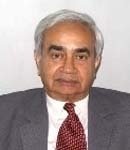Beyond the Kashmir Elections
31 Aug, 2002 · 850
PR Chari, positing that the forthcoming elections in J&K will not usher in great changes, proposes few measures for conflict resolution
The upcoming elections in Kashmir have become invested with an extraordinary importance, since they are being held after the traumatic events of 9/11 radically altered the political geography of South Asia. Pakistan is in bad odour; it is the self-confessed fount of international terrorism and patron saint of the Taliban, al Qaeda and jihadis of all hues. That President Musharraf joined the US led international coalition against terrorism for foreign policy (US pressure) and financial (debt amortizing) reasons is obvious; so are his domestic compulsions to continue supporting transnational terrorism into Kashmir and not annoy his Islamic fundamentalist lobbies in the clergy and his Army. It is futile to expect the United States to rein in Musharraf beyond verbal exhortations as he is collaborating in rounding up the remnants of the Taliban and al Qaeda fugitives in Pakistan; apparently, the success of these operations is something neither Pakistan nor the United States would like to publicize. In brief, the US could tolerate a low level of cross-border terrorism in Kashmir, which Musharraf could then credibly pass off as really being wholly Kashmiri in character.
For its part, India has fallen victim to its own propaganda that the Kashmir problem derives from Pakistan’s intransigence in promoting cross-border terrorism since 1989. New Delhi cannot even recognize, far less admit, to the serious mistakes made by successive governments in New Delhi whilst dealing with Kashmir. These are plainly evident to the international community and, of course, the Kashmiris. These mistakes include rigged elections, human rights violations, refusal to enlarge the autonomy (not devolution) promised to Kashmir through Article 370, collaborating to ensure the hold of the Abdullah family over power in Kashmir, turning a blind eye to the pathetic state of governance in the state, foisting bureaucrats from outside the State and Governors unacceptable to the political leadership – in truth, the list is endless. Without addressing these hard issues, New Delhi has chosen to externalize its Kashmir problem by blaming it wholly on the proxy war launched by Pakistan.
Consequently, both countries are on the wrong side of history. Pakistan, because it has anointed cross-border terrorism into Kashmir as the center-piece of its anti-India policy, is well aware that it could only bleed India, but not acquire Kashmir by this modality. This feckless policy was not sustainable forever, and became untenable after 9/11 with the global recognition of terrorism as the major security threat to international security. India’s problem lies in its failure to understand that the zeitgeist favours the extension of sovereignty to local areas and spread of the democratic idea through nations; hence the basic problem of Kashmir lies within the Indian polity, and not without. The alienation of the Valley Muslims from India is uncontestable, but a poll conducted by MORI – a UK-based public opinion research organization shows that 61 percent of the respondents in Kashmir want to remain in India; only six percent wished to go to Pakistan; whilst the remaining 33 percent were unclear about their preferences.
The reasonable expectation in these circumstances is that the Kashmir elections would be violent; ultimately, it would return the National Conference to power, as it has a grassroots presence in Leh and Jammu apart from the Kashmir Valley, which no other party enjoys. The Hurriyat may, but probably will not, participate in the elections. Its influence, anyway, is limited to a few urban areas in the Valley; by not participating in the elections it will ensure its marginalisation over time, since Pakistani support to it would becoming increasingly problematical in the coming years. The international community, therefore, should ignore the Hurriyat, and let an alternative leadership develop in the state by normal political processes.
At this stage, a six-point formula can be suggested to settle the Kashmir problem:
-
Pakistan must stop cross-border terrorism on a permanent basis;
-
Pakistan must credibly dismantle its jihadi and Islamic fundamentalist structures that support cross-border terrorism;
-
India should reinforce the credibility of the Kashmir elections by actively encouraging national and international observers to come and witness the entire process;
-
India should announce that it will commence negotiations on the Autonomy Report with the government that comes into power in Srinagar after the elections; this was summarily rejected by New Delhi, despite its passage by the J & K Assembly;
-
An Indo-Pak dialogue should be commenced, but outside South Asia wherein the temptation for rhetoric and grandstanding is almost irresistible, and
-
The eventual solution can only be the geo-political division of Kashmir along the Line of Control, with marginal adjustments to ensure its greater defensibility; a “soft” border between the two wings on Kashmir is conceivable thereafter to permit easier movement of divided populations, improved communications, greater trade and commerce and so on.


